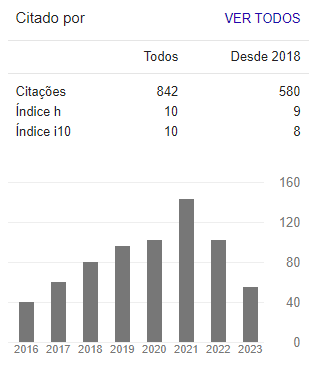Anachronism and the discourse of human solidarity: Borges in (on) Poema conjetural
DOI:
https://doi.org/10.23925/1983-4373.2017i19p229-252Keywords:
Literatura moderna, Literatura argentina, Literatura comparadaAbstract
On July 4, 1934, Jorge Luis Borges published Poema conjetural a text that follows the consciousness of Francisco Narciso de Laprida, a historical character of the Argentinian Independence, in his deathbed. The poem embodies a political criticism that is, nevertheless, subtly built through the use of symmetrical dates (the 1943 coup d’état stars on June 4) and through the presence of an anachronism in Laprida’s conjecture, the term sudamericano. This paper investigates how Borges revisits his poem, in a lecture and in interviews, to add comments that highlight the anachronism and its political criticism implied in it. The thesis is that the enveloping texts reveal the author’s wish to point out the presence of a pathos in his poem, a discourse of human solidarity directed to South-Americans. It is in the ambivalence of the discourse, in (on) Poema conjetural, that the historical poem/contemporary poem anachronism reaches its full power.











 Este obra está licenciada com uma Licença
Este obra está licenciada com uma Licença 